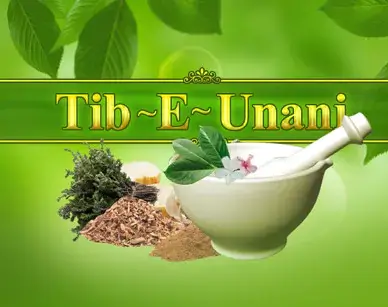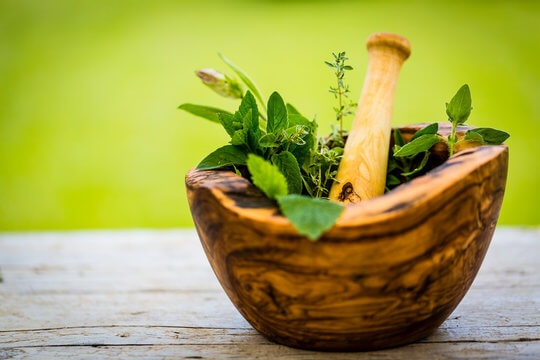UNANI MEDICINE IN INDIA
History
The Unani System of Medicine is an age-old system of healthcare, which came to India from Greece through Arab and Iran, developed scientifically to great heights and earned wide public acceptance in this country. This system is known, in different parts of the world, with different names such as GrecoArab Medicine, Ionian Medicine, Arab Medicine, Islamic Medicine, Traditional Medicine, and Oriental Medicine etc. In Pakistan it is known as the “Eastern medicine’; in UAE it is called as “Complementary and Alternative medicine”, similarly in Iran, it is called as “Tibb-e Nabawi” whereas in some other parts of the Arab world, it is called as “Prophetic medicine”.
Role of Indian Government
The Government of India has recognized Unani Medicine as an Indian System of Medicine and systematically integrated it in the national healthcare delivery system. With formation of a full-fledged Ministry of Ayurveda, Yoga & Naturopathy, Unani, Siddha, and Homoeopathy (AYUSH) in November 2014, AYUSH systems of medicine have got a further boost.
To address the emerging challenges of healthcare, the Ministry of AYUSH has been taking serious initiatives for integrating AYUSH systems with the conventional medicine. The Ministry in collaboration with Directorate General of Health Services has launched a programme to integrate Ayurveda, Unani and Homoeopathy with National Programme for Prevention and Control of Cancer, Diabetes, Cardiovascular Diseases and Stroke (NPCDCS) through its research councils with the objectives of prevention, early diagnosis and reducing complications of these diseases and promote it worldwide.
Hospitals and Institutions
Today, the country has a well-developed infrastructure of academic, research and healthcare institutions of Unani System of Medicine. There are 46 teaching institutions that offer Unani medical education and training. The country has a large network of Unani hospitals and dispensaries, which are mainly functioning under Central and State Governments. The education and training facilities in Unani System of Medicine are presently being monitored by the Central Council of Indian Medicine (CCIM), which is a statutory body set up by an Act of Parliament known as Indian Medicine Central Council (IMCC) Act, 1970.
At present, there are 48,213 registered Unani practitioners under the Central and State boards in the country. Presently, 25 States/Union Territories in the country have Unani hospitals / dispensaries. There are 265 Unani hospitals with a total bed-strength of 3,623 and 1,491 Unani dispensaries in the country. There are 505 Unani drug manufacturing units (licensed pharmacies) in different states/UTs of the country.
Leading Specialists of Unani Medicine
Unani System of Medicine offers safe and effective treatment for some of selected disorders like
- Vitiligo
- Eczema
- Psoriasis
- Rheumatoid arthritis
- Bronchial asthma
- Neurological disorders
- Liver diseases
Unani Medicine played an important role in the prevention and management of
- Jaundice
- Conjunctivitis
- Bacillary dysentery
- Gastro-enteritis
- Cholera
- Plague
- Dengue
- Dropsy and
- Chikungunya.
In Unani System of Medicine, four types of treatment are employed when the prevention is failed and disease occurs, which include
- Regimen therapy (‘Iläj bi’l-Tadbér)
- Dietotherapy (‘Iläj bi’l-Ghidhä’)
- Pharmacotherapy (‘Iläj bi’l-Dawä’) and
- Surgery (‘Iläj bi’l-Yad).
Regimen therapy: It is one of the most popular methods of treatment practiced by Unani physicians. These are mostly non-medicinal procedures by which we modulate the lifestyles for preservation of health and treatment of disease.
The regimen therapies practiced in Unani Medicine include
- Cupping
- Massage
- Leeching
- Venesection
- Purgation
- Emesis
- Diuresis
- Enema
- Diaphoresis
- Expectoration
- Counter Irritation
- Sitz Bath
- Irrigation
- Fomentation etc.
Dietotherapy: Aims at preventing and treating certain ailments by administration of specific diets or by regulating the quantity and quality of food. Unani Medicine lays great stress on treating certain ailments by administration of specific diets. In addition to nutritional properties, various foods have pharmacological actions too. For example, many foods are laxative, diuretic and diaphoretic.
Pharmacotherapy: It deals with the use of naturally occurring drugs, mostly herbal, though drugs of animal and mineral origin are also used in Unani Medicine. The naturally occurring drugs used in this system are symbolic of life and are generally free from side-effects.
Surgery : Abü al-Qäsim al-Zahräwé, an Arab Unani physician, wrote a book entitled Kitäb al-Tañréf li-man ‘Ajiza ‘An al-Ta’léf with illustrations of surgical instruments. He described several procedures, and techniques, including
- Extraction of cataracts
- Removal of kidney stones
- Tonsillectomy
- Tracheotomy
- Craniotomy
- Caesarean section
- Dentistry, etc.
Shift from Allopathic system to Unani Medicine
It carries a lot of scope and a way forward not only in India, but around the world. There are cases that Unani treatment has successfully treated such illnesses like joint pain, asthma, hepatitis and sinusitis which had turned out to be incessant amid drawn out allopathic treatment. In recent years, there has been a renewed interest in AYUSH systems of medicine in both developing as well as developed countries of the world, particularly because of the fact that the drugs used in these systems have curative value with no major adverse effects and strengthen the immune system of the body. The patients were mostly of chronic ailments switching over from allopathic system to Unani Medicine or taking Unani Medicine as an adjuvant therapy to combat the side effects of the allopathic drugs.
The use of cupping has evolved, and today it's widely used for pain relief and musculoskeletal injuries, such as strains, sprains, back injuries, and inflammation. Cupping therapy is a practice that involves briefly applying rounded inverted cups to certain parts of the body using a vacuum effect. Some proponents suggest that the drawing of the skin inside the cups increases blood flow to the area. Long used in traditional Chinese medicine and other ancient healing systems, cupping has gained considerable popularity in recent years among athletes. For instance, swimmer Michael Phelps had the therapy in preparation for the 2016 Summer Olympics.
BEST UNANI HOSPITALS IN INDIA
The patient is well informed and educated about the illness and emotional support is given to them. Patient and their family are made involved in taking decisions related to treatment. The respect, care, information, coordination and accessibility provided to a medical tourist defines the best experience in India.
- 1. Government Nizamia Tibbi College & Hospital, Hyderabad, Telangana.
- 2. Faculty of Medicine (Unani), Jamia Hamdard, New Delhi.
- 3. Zuleikhabai Valy Md. Unani Medical College & Hospital, Pune, Maharashtra.
- 4. Mohammadia Tibbia College & Assayer Hospital, Malegaon, Maharashtra
- 5. Aligarh Unani & Ayurvedic Medical College & ACN Hospital, Aligarh Uttar Pradesh.
- 6. National Institute of Unani Medicine, Bengaluru.
- 7. Markaz Unani Medical College & Hospital Kozhikode, Kerala.
- 8. Syed Ziaul Hassan Government Unani Medical College & Hospital, Bhopal, Madhya Pradesh.
- 9. Rajputana Unani Medical College, Hospital & Research Centre,Jaipur, Rajasthan.
- 10. Calcutta Unani Medical College & Hospital, Kolkata, West Bengal.

